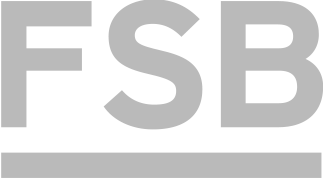International Exchange
Course details
Student Mobility > Programmes and Courses > Courses in English > Course detailsMaterials Recycling
- Teaching: Completely taught in English
- ECTS: 5
- Level: Graduate
- Semester: Winter
- Prerequisites:
- Passed all courses from the study programme.
- Load:
Lectures Exercises Laboratory exercises Project laboratory Physical education excercises Field exercises Seminar Design exercises Practicum 30 7 0 0 8 0 0 0 - Course objectives:
- Getting to know the design and materials selection principles, based on product"s life cycle. Organisation, processes and effects of recycling and remanufacturing technologies.
- Student responsibilities:
- Grading and evaluation of student work over the course of instruction and at a final exam:
- Preliminary examinations and essay.
- Methods of monitoring quality that ensure acquisition of exit competences:
- Preliminary exams, written essay and oral presentation.
- Upon successful completion of the course, students will be able to (learning outcomes):
- After successfully mastering the subject, the student will be able to: Connect advanced knowledge of science and technology to solve complex technical problems in an interdisciplinary context. Recommend solutions to new problems by applying acquired knowledge of the elements of technical systems and processes and their interactions during their entire life cycle. Distinct advanced modeling techniques for technical systems and processes modeling, as a tool for creative solving of complex problems in mechanical and related engineering. Analise the materials, technologies and technical systems from the business and social standpoint and environmental concerns. Formulate the recycling options of plastic materials. Categorize the waste according to legal regulations. Sort the materials for recycling according to physical properties. Distinct different types of dangerous waste. Compare and analyse different possibilities in recycling of materials. Present own research and build own standpoint on an assigned problem in recycling of materials.
- Lectures
- 1. Technological, economical, organisational and social aspects of recycling.
- 2. Resources and reserves of raw materials, and life cycle of materials.
- 3. Analysis of ecological criteria and materials recyclability.
- 4. Rules and processes of design and material selection with regard to recyclability. Testing and properties of recycled materials.
- 5. Quantitative methods of a product life cycle balance - energy consumption, waste and emissions.
- 6. Quantitative methods of a product life cycle balance - energy consumption, waste and emissions.
- 7. The systematization of products with regard to recycling and recovery.
- 8. The principles of establishing and renewing industrial products during and after exploitation - Examples of vehicle (car).
- 9. The principles of establishing and renewing industrial products during and after exploitation - Examples of household appliances, electronics, etc.
- 10. Technology, processes and equipment for the recycling of steel and cast iron, aluminum, copper and other alloys.
- 11. Technology, processes and equipment for the recycling of polymers and composites.
- 12. Technology, processes and equipment for the recycling of different materials: wood, paper, glass and other materials.
- 13. Organisation and processes of collection and identification of products and materials for reuse.
- 14. Organization and testing, separation and processing of products and materials for reuse.
- 15. Landfills, problems, fees, costs and effects of recycling.
- Exercises
- 1. Examples of product recovery processes.
- 2. Examples of product development and material selection with regard to recyclability 1.
- 3. Examples of product development and material selection with regard to recyclability 2.
- 4. Visit to the recycling facility.
- 5. Visit to the recycling facility.
- 6. Visit to the recycling facility.
- 7. Visit to the recycling facility.
- 8. Visit to the recycling facility.
- 9. Visit to the recycling facility.
- 10. Visit to the plant for recovery of products.
- 11. Visit to the plant for recovery of products.
- 12. Product disassembly examples.
- 13. Eco-indicator calculation.
- 14. Applying the method of lifelong evaluation of products and materials
- 15. Applying the method of lifelong evaluation of products and materials
- Compulsory literature:
- M. Kljajin, M. Opalić, A. Pintarić: Recikliranje električnih i elektroničkih proizvoda, Sveučilište J. J. Strossmayera u Osijeku i Sveučilište u Zagrebu, 2006.
M. F. Ashby: Materials and the Environment, Butterworth-Heinemann, 2009.
3. Z. Vac: Svjetska iskustva u zbrinjavanju otpada, Ministarstvo za zaštitu okoliša, 1991. - Recommended literature:
- E. Hornbogen, R. Bode, P. Donner: Recycling - Materialwissenschafftliche Aspekte, Springer Verlag, Berlin, 1993.
M. Šercer, D. Opsenica, G. Barić: Oporaba plastike i gume, Mtg topgraf d.o.o., Zagreb, 2000.
W. Nickel: Recycling Handbuch, VDI Verlag, Duesseldorf, 1996.
J. Vaughn: Waste management, Santa Barbara ABC-CLIO, 2009.






